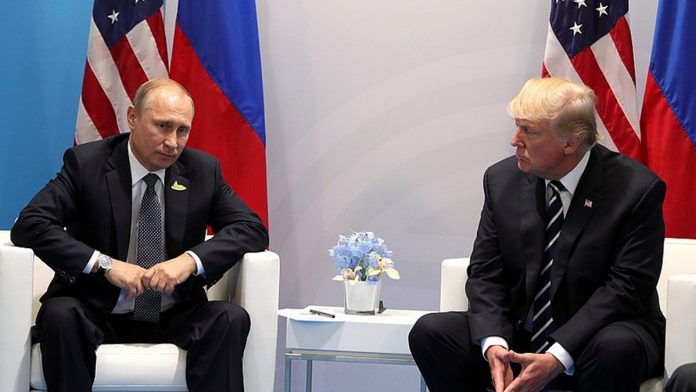
- 6Shares
Donald Trump didn’t conspire with Russia for presidency, finds US probe
After a 22-month investigation into Russia’s alleged involvement in the 2016 US presidential election, US Justice Department Special Counsel Robert Mueller told US Congress Sunday that there was no evidence of President Donald Trump’s collusion with Russia for the election, reported BBC.
Mueller’s statement, however, clearly noted Russian government’s attempt to intervene and subvert the 2016 election.
The report comes as a massive relief for Trump who said in a media statement, “It was just announced there was no collusion with Russia… There was no obstruction. It was a complete and total exoneration. It’s a shame that our country had to go through this… This was an illegal takedown that failed.”
It is likely that the US Congress will now take some punitive action against Russia. While the White House under Trump has been reluctant to go after Russia, the Congress has a strong bipartisan consensus in terms of their dislike for Russian President Vladimir Putin and his policies.
After Mueller’s report Sunday, many analysts and pundits celebrated the robust nature of US institutions.
“Speaks volumes about the strength of American institutions that Mueller’s investigation (and the comparative weakness of any individual President) proceeded from start to finish with no interference of any kind,” tweeted Ian Bremmer, founder and president of political risk consultant Eurasia Group.
Speaks volumes about the strength of American institutions that Mueller’s investigation (and the comparative weakness of any individual President) proceeded from start to finish with no interference of any kind.
— ian bremmer (@ianbremmer) March 24, 2019
A ‘coup’ against Theresa May that wasn’t
Earlier Sunday, reports in English newspapers — The Sunday Times and the Daily Mail — indicated that UK cabinet ministers were plotting to remove Prime Minister Theresa May and replace her by a caretaker leader.
The reports suggested that Conservative Party MPs were looking to replace May in a hope her absence might motivate the legislators to back the Brexit deal in the Parliament.
Michael Gove and David Lidington were the two leaders tipped to take charge from May.
However, even before the reported attempts to dispose May could be facilitated, both Gove and Lidington said that they were not interested in replacing the prime minister.
Close associates of Gove reportedly said that he did not believe in the concept of a caretaker government. In a public statement, Lidington said that he was “100 per cent” behind May.
While the “coup” seems to have been averted, it is unclear how the UK plans to leave the European Union on the fast approaching 29 March Brexit deadline.
The UK Parliament has twice rejected May’s Brexit deal and it is not clear whether there would be another vote on it this week.
Treasury secretary and a key cabinet minister, Phillip Hammond, told BBC, “One way or another Parliament is going to have an opportunity this week to decide what it’s in favour of.”
In other news:
GZERO interviews Venezuelan opposition leader Juan Guaidó, GZero Media (Eurasia Group)
Read Global Pulse for a sampler of the big international stories, and why they matter.
- 6Shares